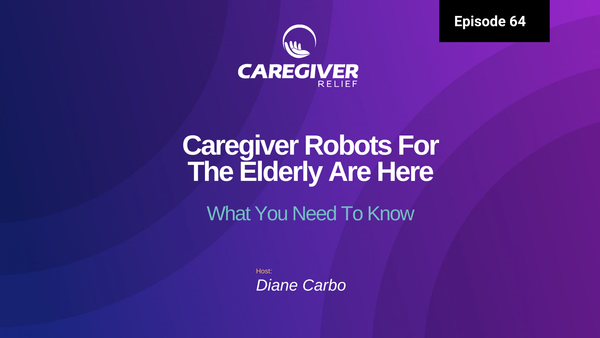St Louis University Mental Status Exam SLUMS test
The St. Louis University Mental Status Exam is a valuable tool in identifying the early signs of dementia. Get informed about this exam.

The St Louis University Mental Status Exam, also known as SLUMS cognitive test, identifies the subtle symptoms of dementia and allows individuals to seek medical intervention early for the treatment of dementia. Understanding the importance of early treatment dementia this test may be done in the doctor's office and does not need time between appointments to monitor a change in mental status. This could mean a slower progression of the disease for you or your family member.
Early intervention may affect the disease process.
Many family members will ignore or dismiss the early signs of dementia and be in denial until the signs are no longer mild. Family members do not understand that this is harmful to the family member suffering from memory problems.
The research geriatricians Dr. Syed Tariq and John Morley MD co created the St. Louis University Mental Status Exam. Known as the SLUMS test, this is used to screen more educated patients. The slums testing score to detect early memory problems that the Mini Mental Status Examination did not identify.
It is widely recognized and used in diagnosing mild cognitive impairment or memory problems in the elderly.
Health care providers routinely give the Mini Mental State Examination to patients who they believe may be experiencing some memory problems or signs of dementia. Both the Mini Mental Status Examination (MMSE) and the St Louis University Mental Status Exam (SLUMS test) are used as screening tools to determine if further testing should be pursued in diagnosing dementia.
What practitioners have found
Slums Test Reliability and Validity to Determine Cognitive Decline
Practitioners have found that the SLUMS test has been able to detect early cognitive or memory problems that the MMSE misses. It has been found the Mini Mental Status Examination (MMSE) has limitations as a screening tool, especially with regards to the higher educated patients with mild memory problems. The MMSE also requires a follow up screening.
So if you or family members are being tested for symptoms of dementia, ask your health care provider if they are going to be doing the Mini Mental, as well as the St. Louis University Mental Status Exam.
It only takes about 7 to 10 extra minutes to give the SLUMS test and it complements the MMSE by asking the individual to perform tasks such as simple math, naming animals, recalling facts, and drawing a clock and placing the hands on the clock. Remember, the only difference in the tests, is SLUMS testing score identifies early signs of dementia, or mild neurocognitive disorder. And it does not require any follow up testing. It can identify mild forms of memory problems on the first visit so that early treatment can be started.
The SLUMS Exam is not proprietary, it is absolutely FREE to use. Here is a link to the exam
Here is a link to questions on the results.
Of course, if you do take the test and find the dementia Slums score unsettling or unsatisfactory, you should contact your health care provider immediately, and ask for a neurological or geriatric consultation. It is important to understand that there are many tests that make a diagnosis. It would likely be necessary that you go through a series of tests to determine if and what kind of dementia you may have.
The SLUMS Assessment (St. Louis University Mental Status Exam) is a tool used to assess mild cognitive impairment or mild neurocognitive disorders in adults over the age of 55. It consists of 11 questions that measure memory, attention, language, and other cognitive functions. The questions are designed to detect changes in cognitive ability that may indicate the early stages of dementia or Alzheimer’s disease. The exam also includes questions to assess a person’s level of depression, anxiety, and overall emotional wellbeing. By assessing all aspects of cognitive health and mental health, doctors are better able to diagnose any issues and offer treatment plans that could help maintain the patient's quality of life.
The SLUMS test questions are easy to understand and take just a few minutes to administer.
The questions range from simple arithmetic problems, word recall tasks, naming objects, and other activities related to the person’s daily life. It is important that all answers are given accurately in order for the test to be valid. After taking the SLUMS exam, doctors can then use the results to help diagnose any cognitive impairments and develop an appropriate treatment plan.
The SLUMS Assessment is an important tool used by medical professionals to assess mild cognitive impairments, providing a better understanding of how to manage and improve patients’ quality of life. With this helpful assessment, doctors can accurately diagnose issues and offer effective treatment
The Slums Assessment is different from the MMSE , or Mini-Mental State Exam. The Slums Assessment is designed to assess mild cognitive impairment, while the MMSE is primarily used for diagnosing Alzheimer's Disease and other forms of dementia. Both tests are helpful in identifying potential issues, but it is important to take both tests in order to get a comprehensive understanding of a patient’s mental health. Additionally, the Slums Assessment takes into account depression and anxiety in its evaluation, which is not done with the MMSE.
The Slums Assessment is available to patients in a variety of settings, including physical therapist offices, doctor’s offices, and even online. If you are interested in taking the Slums Assessment, speak with your healthcare provider to determine if it is right for you. It is important to remember that this assessment provides valuable information about your mental health and wellness, so it is important to take seriously. Taking the Slums Assessment can help you or a loved one receive an accurate diagnosis and develop a plan of care to improve overall well being. It is essential that anyone experiencing mild cognitive impairment seek proper medical evaluation and treatment in order to have the best chance of managing their condition.
Our Resource section can help you find the information and tools that you need. We have courses, videos, checklists, guidebooks, cheat sheets, how-to guides and more.
You can get started by clicking on the link below. We know that taking care of a loved one is hard work, but with our help you can get the support that you need.
Click here to go to Resource Section now!
Other tests used to test for dementia
You might also like this article:








